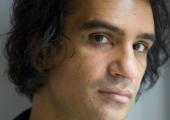Sunday Book: Tessa Hadley - Bad Dreams

Precision-engineered stories of changing minds and times
In one of Tessa Hadley’s piercingly smart and subtle tales, a woman whose upwardly-mobile path has taken her from Leeds to Philadelphia works for a firm that manufactures instruments to test the “tensile strength” of materials. You can treat the Hadley short story as that sort of device in itself. Precision engineered and finely calibrated, it stress-tests not only marriages and affairs but memories, desires, even identities, with episodes of crisis and discovery that reveal each fault-line or fracture.









